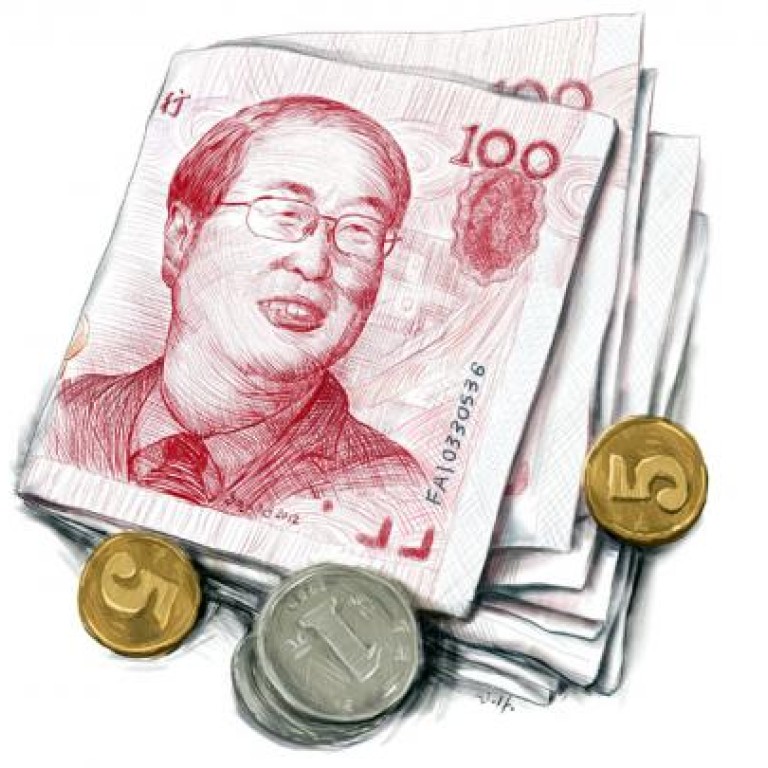
China's central bank governor, Zhou Xiaochuan, led financial reform
Zhou Xiaochuan was a key architect of financial reform but he is due to retire. Many say he should be given a bigger role to oversee the economy
Zhou Xiaochuan has been head of the central bank, the People's Bank of China (PBOC), for almost 10 years but he will turn 65 in January and is due to retire, leaving some very big shoes to fill.


His successor will step into the job as China struggles to break away from its traditional development mode and move onto a more sustainable track, with banking and finance reform likely to become more important. Meanwhile Zhou's future is also subject to speculation as Beijing's once-in-a-decade leadership transition gets under way.
The favourite to succeed Zhou is the other mainlander on 50 Most Influential list, Industrial and Commercial Bank of China (ICBC) chairman Jiang Jianqing . Other possibles include Lou Jiwei, the chairman of China's sovereign wealth fund, and Shang Fulin, the former chief securities regulator who was appointed chairman of the China Banking Regulatory Commission late last year.
Lu Zhengwei , chief economist at Industrial Bank, said the qualification threshold for a central bank governor was higher now. "He needs to have good academic qualifications, rich experience in policymaking and, most important, political influence to enforce the planned reform measures," Lu said.
Mainland bankers regard Zhou as the key architect of embryonic mainland efforts to create a market-based interest-rate regime, move the yuan towards a free-floating exchange mechanism and turn it into an internationally used currency.
Zhou, who earned a PhD in engineering from Tsinghua University in 1985, is the only senior mainland official to have served at the helm of both the central bank and the securities watchdog, spending two years at the China Securities Regulatory Commission (CSRC) before joining the PBOC in December 2002.
The reform-minded technocrat was seen as "a rare asset" in the financial sector because of his early work experience at the foreign trade ministry, foreign exchange administration, economic planning agency and China Construction Bank, one of the country's "big four" lenders. "He is a no-nonsense and high-calibre official who should be given a bigger role in overseeing the economy and finance sector," said a Beijing-based source close to the central bank. "At the central bank, he is highly respected and many subordinates view him as an idol."
With Beijing setting a retirement age of 65 for ministers, Zhou is unlikely to secure another five-year term as central bank governor next year. If he became a state councillor, Zhou could postpone his retirement to 70 and still be on hand to provide key advice to the leadership.
But in the opaque world of mainland politics, it is difficult to know how much weight to give to a senior cadre's capabilities when assessing his political prospects, and it remains to be seen whether Zhou will win promotion next year, with reform of the banking sector at a critical juncture.
Zhou was one of the top lieutenants of former premier Zhu Rongji , China's economic tsar between 1993 and 2002, and was regarded as a rising political star when appointed CSRC chairman in 2000. Some observers predicted he could be a future premier or vice-premier.
Millions of mainland retail investors regarded him as a strong-minded reformist during his two years at the securities regulator, dealing heavy blows to unethical company executives and fund managers.
The clean-up efforts caused a market downturn when a raft of accounting and market manipulation scandals was unearthed. But even though the market turned bearish between 2000 and 2002, leaving most investors licking their wounds, criticism of the CSRC and Zhou was muted.
After being named central bank governor in 2002, Zhou was tasked with carrying out broad reform of the country's banking industry. The top leadership also sought to make use of his financial knowledge in its attempts to give monetary policy a more prominent role in macroeconomic planning.
Economists and researchers say Zhou lived up to those expectations, with changes in interest rates and exchange rates playing an increasingly important role in directing economic activity.
Zhou also drew rave reviews in mid-2010 when he suggested creating a new global reserve currency to replace the US dollar. His proposal was backed by International Monetary Fund experts.
With horse-trading continuing in the lead-up to the naming of the new leadership line-up, speculation has recently surfaced that Zhou could be given a new role, focusing on further reform of the banking sector.
Zhou has already taken the lead in reforming the mainland's interest-rate regime. The banks have historically enjoyed a high net interest margin - the difference between lending and deposit rates - with the central bank maintaining a tight grip on the setting of interest rates, but Zhou took an initial step towards the creation of a market-based interest rate mechanism.
Earlier this year, the PBOC allowed banks to offer borrowers a discount on the benchmark rate and to pay depositors more than the benchmark rate, allowing them to better compete for customers but potentially narrowing the spread between the two rates and eating into profits.
Gu Weiyong , chief investment officer with Ucon Investment Management, said: "The reform has to be deepened to make the banking sector better serve businesses. But you need a savvy and strong-willed central bank governor to implement it."
It would be reasonable for Zhou to be promoted to a position that would enable him to implement deeper reform, bank industry officials and analysts said.

